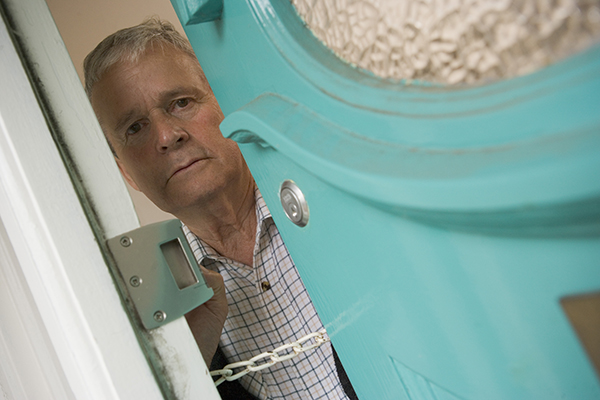Out of all the outcomes of Alzheimer’s disease, probably one of the most worrying is the Alzheimer’s Walk, or an individual’s tendency for wandering and the potential dangers that can arise if the senior becomes disoriented or lost. Wandering can occur any time the older adult is:
- Scared, confused or overwhelmed
- Looking for someone or something
- Bored
- Trying to preserve a familiar former routine (for example, going to work or shopping)
- Tending to a simple need (such as searching for a drink of water or going to the bathroom)
The objective is twofold; to keep your loved one safe and secure, and to be certain that his or her needs are met to try to prevent the desire to wander. Consider the following basic safety measures in case your senior loved one is likely to wander:
- Be certain that the home is equipped with a security system and locks that the senior is unable to master, such as a sliding bolt lock above his / her range of vision. A number of alarms exist, from something as simple as placing a bell over door knobs, to highly-sensitive pressure mats that will sound an alarm when stepped upon, to GPS products that can be worn, and more. It’s also best to register for the Alzheimer’s Association’s Safe Return Program.
- Camouflage exits by covering up doors with curtains, setting temporary folding barriers strategically around doorways, or by wallpapering or painting doors to match the surrounding walls. You may also try placing “NO EXIT” signs on doors, which can sometimes deter those in the earlier stages of dementia from trying to exit.
- An additional hazard for individuals who wander is the elevated risk of falling. Have a look at each room of the house and tackle any tripping concerns, such as eliminating throw rugs, electrical cords, and any hindrances which could be blocking walkways, adding extra lighting, and placing gates at the top and bottom of stairways.
It’s important to bear in mind that with supervision and direction, wandering is not necessarily a challenge. Take a walk together outside anytime weather permits and your loved one is in the mood to be on the move, providing the extra benefit of fresh air, exercise, and quality time together.
While often tricky to manage, the dementia care team at Independence-4-Seniors Home Care is specially trained to be both vigilant and proactive in deterring wandering and to utilize creative approaches to help older adults with dementia remain calm and content. Contact us online or call us for senior care in Hinsdale or the surrounding area at (630) 323-4665 for more information!

